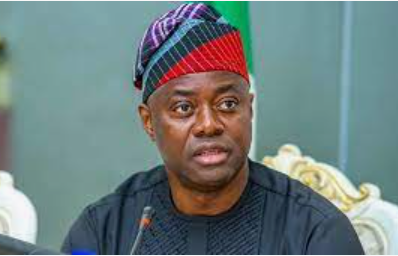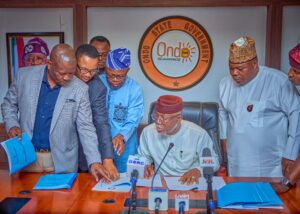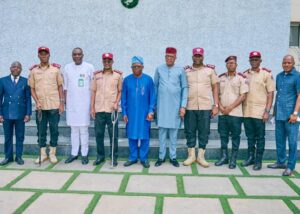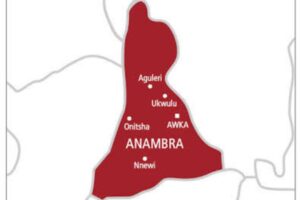Atiku Abubakar: INEC laying foundation for rigging 2023 polls with manual collation of results
Presidential candidate of Peoples Democratic Party (PDP), Atiku Abubakar, has said the idea of manual collation of election results by the Independent National Electoral Commission (INEC) is a ploy to lay the groundwork for rigging next year’s general election. Atiku, who spoke through one of his spokesmen, Daniel Bwala, yesterday, was reacting to a statement credited to the National Commissioner of INEC in charge of Information and Chairman, Voter Education, Festus Okoye, that the 2023 general election results would be transmitted manually.
The former vice president insisted that there must be strict adherence to the new electoral law, which supports a good use of technology in elections. He said such adherence to the law was necessary, as it worked in other states where off-season governorship elections took place recently.
But INEC also reacted, saying its explanation on result management procedure is being misinterpreted to mean the commission has jettisoned the electronic transmission of result and reverted to the manual process. It said that position was not correct.
Okoye had said recently, “There is a marked difference between the transfer/transmission of results and the collation of results. Section 50(2) of the Electoral Act, 2022, gives the commission the absolute discretion to determine the mode and procedure of voting in an election and the transmission of election results.
“Sections 60 and 62 of the Electoral Act govern post-election procedure and collation of election results. Section 60(1) of the Act provides that the presiding officer shall, after counting the votes at a polling unit, enter the votes scored by each candidate in a form to be prescribed by the commission.
“Section 60(5) of the Act makes it mandatory that the presiding officer shall transfer the results, including total number of accredited voters and the results of the ballot in a manner prescribed by the commission. Thereafter, the presiding officer shall, after recording and announcing the results, deliver the same along with election materials under security and accompanied by the candidates or their polling agents, where available, to such person as may be prescribed by the commission.
“The implication of this is that the collation process of results is still essentially manual, but the collation officer must collate subject to his verification and confirmation that the number of accredited voters stated on the collated result are correct and consistent with the number of accredited voters recorded and transmitted directly from polling units.”
The commissioner explained that, while the collation of results would be done “essentially” manually, where there was a dispute regarding a collated result or the result from any polling unit, the collation or returning officer would use the original of the disputed collated result, accreditation data from the BVAS device, and the results transmitted directly from the polling unit to determine the correctness of the result.
But reacting through Bwala, Atiku alleged that with such a statement, “INEC is laying the foundation for the rigging of the 2023 elections.”He said Section 60 of the new Electoral Act was clear, adding, “At the close of voting at the polling unit, the voting results will be uploaded, meaning that by the time the officer from the unit goes to the ward, he cannot present a result different from the one that was uploaded, which every voter can have access to it.
And the same thing applies to the local government and the state, because there is evidence you have sent it to a server where it cannot be manipulated. By what Okoye said, it means they are creating the room and possibility for somebody to manipulate the result without prejudice to the counting and the result as announced at the unit.
“And where there is a conflict, that reliance will be placed on the manual collation. In other words, they are trying to go around the provisions of the Electoral Act to take us back to where we are coming from. Sadly, they are trying to find a solution, where there is no problem, because this same electronic upload and transmission has been done in Anambra, Ekiti, in Edo and Osun and they were successful. That procedure has not been challenged.
“If you go to court, all the challenge in court were around certificates of individual and whether that individual is qualified or not. But that procedure has worked. So why are you trying to fix something that is not broken? It means something is fishy; we smell a coffee. And that’s why we’re calling all well-meaning Nigerians and lovers of democracy in Nigeria and beyond to raise their voice and speak with one voice.”
Atiku’s image-maker added, “There must be strict compliance with the provisions of the Electoral Act with respect to electronic upload and transmission of result, without prejudice to what INEC is thinking about bringing.
“We must never try to change the procedure that has worked in these states mentioned. It must be free, it must be transparent. We don’t want litigation. We want the voice and the will of the people to prevail in Nigeria.”
INEC, in a statement by Okoye, said, “Some have interpreted the explanation on result management procedure to mean that the commission has jettisoned the electronic transmission of result and reverted to the manual process. This is not correct.
“For clarity, the procedure for result transmission remains the same as in recent governorship elections in Ekiti and Osun states. There will be no change in all future elections, including the 2023 general election.
“We wish to reassure Nigerians that the electronic transmission of result has come to stay. It adds to the credibility and transparency of the process, when citizens follow polling unit level results on the INEC Result Viewing (IReV) portal on real-time on Election Day. There will be no change or deviation in subsequent elections.
“The entire gamut of result management is provided for in Sections 60, 62 and 64 of the Electoral Act 2022. In line with the provision of the law, the commission, in April this year, released a detailed clarification of the procedure for transmission, collation and declaration of result, which was shared with all stakeholders and uploaded to our website.
“We appeal to all Nigerians to avail themselves of the provisions of the Electoral Act and the commission’s detailed explanation of the procedure and not reach a conclusion on the basis of media headlines.”
The Civil Legislative Advocacy Centre (CISLAC) called on INEC to defuse the tension and rumour around the subject of manual collation of results by frankly stating the commission’s position ahead of next year’s general election.
Although INEC had clarified its position, CISLAC, in a statement by its Executive Director, Auwal Ibrahim Musa (Rafsanjani), said it was seriously worried by rumour across the media through a statement attributed to Okoye, which said results of the 2023 general election would be manually collated.
Musa said, “We recall that well-meaning Nigerians and civil society groups had supported INEC in overcoming hurdles and pushing for the amendment and presidential assent into the Electoral Act, primarily to integrate the electronic voting system in all electoral processes, to enhance electoral integrity, credibility and transparency in the country.
“We, at the same time, are not unaware that some unpatriotic citizens, who constituted themselves as powerful forces would neither support the amendment nor electoral reform, as they preyed on the weak Electoral Law and process in securing votes through electoral fraud, vote-buying/trading, multiple voting, vote-forgery, and money laundering.”
He said while CISLAC would continue to engage relevant stakeholders on electoral reforms, the body, “Reiterates that it would not sit back and watch a major damage to the Nigerian electoral integrity or potential violation of sanity and sanctity of the Electoral (Amendment) Act, giving the prospects and values it holds to deliver transparency, credibility and integrity of the electoral process and outcomes.
“We, on this note, call on INEC to clear the air and give accurate position on the rumour to preserve citizens’ confidence, while preventing the looming distrust in the upcoming 2023 general election. CISLAC will continue to work with INEC to ensure electoral credibility and integrity in the 2023 elections and beyond.”












Post Comment